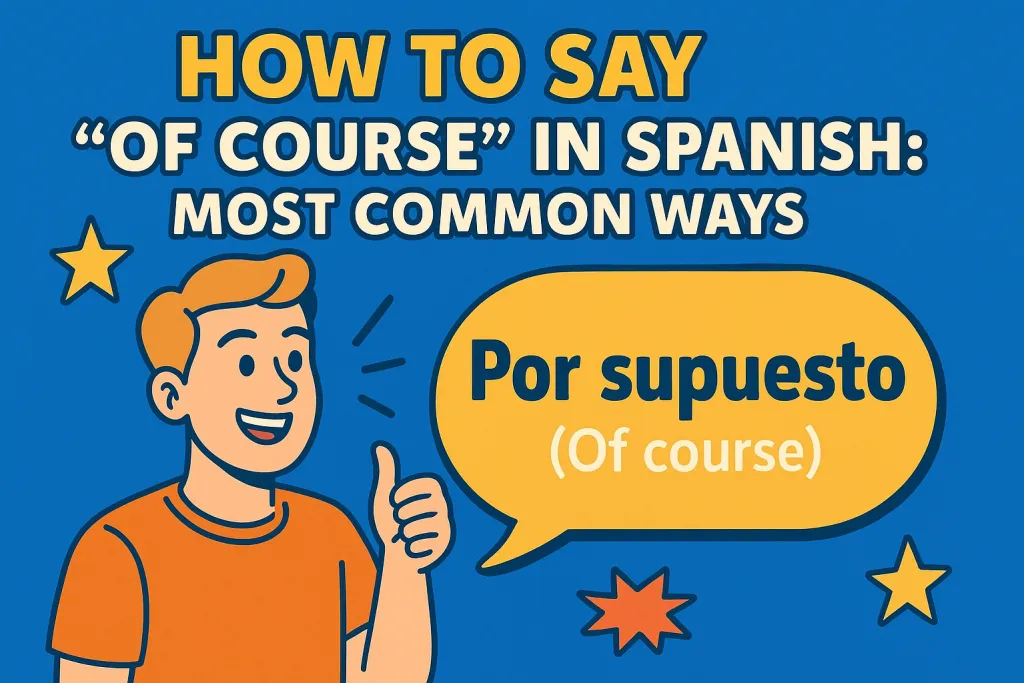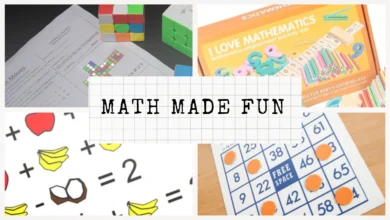If you saw the clue “of course in Spanish NYT” in the New York Times Mini Crossword and got stuck, don’t worry—you’re not alone. Many people see that clue and wonder what the puzzle wants. The answer might look simple, but crosswords love to play little word games. In this case, the clue “of course in Spanish NYT” is asking for a Spanish phrase that means “of course.” It’s not about learning a whole new language—it’s just one word you might even know already. If you’ve heard someone say “claro” in a movie or while talking in Spanish, that’s the word you’re looking for. It means “of course,” and it fits just right in that puzzle box.
Let’s take a deeper look at how this clue works and why the NYT Mini Crossword keeps things short but tricky. The clue “of course in Spanish NYT” might seem like it’s asking for something big, but it’s really focused on just one simple translation. In Spanish, “claro” is a common way to say “of course,” and it shows up often in casual talk. This kind of clue is popular in mini crosswords because it teaches something small, like a tiny language lesson, while still being fun to solve. If you’re learning how to get better at solving NYT clues like this, you’ll notice that clues involving other languages are usually looking for short, common words. By keeping an eye out for these, you can solve faster and enjoy the game more. You don’t need to speak Spanish fluently—just knowing a few key words can be enough to unlock the clue.
What Does “Of Course in Spanish NYT” Really Mean in the Mini Crossword?
When you see the clue “of course in Spanish NYT,” the puzzle is asking you to think of how someone says “of course” in Spanish. It’s a simple way of testing if you know a little Spanish word. The answer is “claro,” which means “of course.” This kind of clue is fun and easy once you understand what it wants. You don’t need to be an expert in Spanish. The NYT Mini likes to use short, common foreign words that people might hear in everyday life or on TV. Clues like this teach you something small while making you smile. So if you see “of course in Spanish” again in a puzzle, just remember “claro” is the go-to answer. It fits well and feels smart when you get it right.
Why “Claro” Is the Right Answer for Of Course in Spanish NYT
The word “claro” is the Spanish way of saying “of course,” and it’s used all the time in conversations. That’s why it shows up in NYT Mini Crossword clues. It’s short, easy to spell, and fits perfectly in small puzzles. Crossword creators love using common words from other languages because they make puzzles more interesting. “Claro” is friendly for new players and fun for experienced solvers. Even if you don’t speak Spanish, this is a word you might have heard before. It’s also the kind of word you can remember easily next time. The clue “of course in Spanish NYT” is not trying to trick you—it just wants to see if you know this helpful little word. Now that you do, solving will be a breeze!
Easy Way to Solve Clues Like Of Course in Spanish NYT
If a crossword clue says something like “of course in Spanish NYT,” don’t panic. First, think about the clue and what it’s really asking. It’s giving you a hint that the answer is a word in Spanish. That’s your clue to stop thinking in English and look for a common Spanish word that means the same thing. In this case, the answer is “claro,” which many people use when they agree with something. Crosswords love clues with little twists like this, but they aren’t too hard once you understand their style. Always check the number of boxes in the puzzle too—it can help you find the right word faster. With clues like this, all you need is a little word knowledge and a bit of guessing, and you’re good to go.
Common Foreign Language Clues in NYT Mini (And How to Solve Them)
The NYT Mini Crossword often adds little foreign words to make the game fun and interesting. Clues like “of course in Spanish NYT” are examples of this style. You don’t need to know a lot of languages to solve them. Usually, the answers are very basic words like “claro,” “oui” (French for yes), or “ciao” (Italian for hello or goodbye). These are words many people already know. If you see a clue that mentions a language, just think of the simplest word you’ve heard in that language. It’s often the answer! Also, look at the length of the word the puzzle needs. It’s like a mini lesson in language and a fun way to learn something new while playing.
How to Learn From Clues Like Of Course in Spanish NYT Without Speaking Spanish
You don’t need to speak Spanish to get the answer to “of course in Spanish NYT.” Just knowing one word can be enough. “Claro” is a word many people have heard before. Crosswords like to test your memory of small things like this. You can learn by solving more puzzles and seeing which words show up again and again. It’s okay to guess and learn as you go. Each puzzle teaches you a little bit more. If you keep playing, you’ll start to recognize clues and remember the answers. Clues that use other languages are a fun way to make your brain grow. They’re like tiny lessons hidden in a game, and that makes learning easy and fun.
Conclusion
Solving clues like “of course in Spanish NYT” is fun once you know what to look for. It’s not hard, even if you don’t speak Spanish. You only need to learn little words like “claro” to get it right. These clues help you learn while having fun. The more you play, the better you’ll get.
Next time you see a clue like this, smile and try your best. Puzzles are a great way to grow your brain. You don’t need big words or hard thinking. Just take it one clue at a time, and you’ll become a puzzle pro soon!
FAQs
Q: What does “of course in Spanish NYT” mean?
A: It means the puzzle is looking for the Spanish word for “of course,” which is “claro.”
Q: Do I need to speak Spanish to solve these clues?
A: No, you just need to know simple words like “claro.”
Q: Why does the NYT Mini use Spanish words?
A: To make puzzles more fun and help players learn small things.
Q: Is “claro” a common crossword answer?
A: Yes, it shows up often in mini puzzles because it’s short and simple.
Q: How can I get better at clues like this?
A: Practice puzzles daily and remember small foreign words that come up often.




